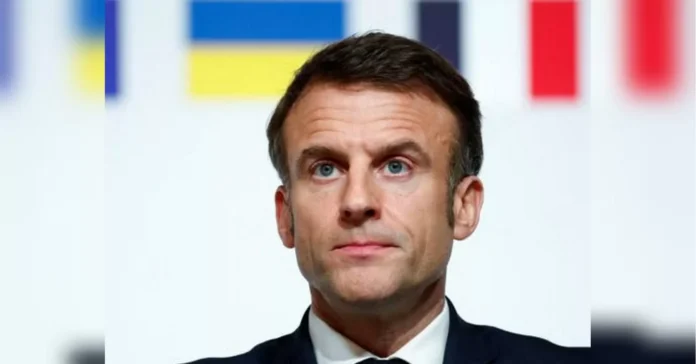How the EU views Macron’s bold statements and his leadership in countering Russian aggression
In recent years, French President Emmanuel Macron has emerged as a strong and vocal leader in the European Union (EU). His bold statements and actions have garnered attention not only within the EU, but also on the global stage. One of the key issues that Macron has taken a firm stance on is the ongoing Russian aggression, particularly in the context of the conflict in Ukraine. So, how does the EU view Macron’s leadership in this regard?
First and foremost, it is important to understand the context in which Macron’s statements and actions have been made. Since 2014, Russia has been involved in a conflict with Ukraine, which has resulted in the annexation of Crimea and ongoing military support for separatist rebels in eastern Ukraine. This has been a major source of tension between Russia and the EU, with the latter imposing economic sanctions on Russia in response to its actions.
In this tense environment, Macron has been a vocal critic of Russia’s actions and has taken a strong stance against its aggression. In 2017, he stated that Russia’s annexation of Crimea was «illegal» and called for the implementation of the Minsk agreements, which aim to bring an end to the conflict in Ukraine. He has also been a strong advocate for maintaining the EU’s sanctions on Russia, arguing that they are necessary to deter further aggression.
Macron’s leadership in this regard has been well-received by the EU. His strong stance on Russia has been seen as a refreshing change from the more cautious approach taken by some other EU leaders. In fact, Macron’s bold statements have often been seen as a reflection of the EU’s collective stance on the issue.
Moreover, Macron’s leadership has also been praised for its effectiveness in countering Russian aggression. In 2018, he played a key role in securing a ceasefire agreement between Russia and Ukraine, which was seen as a major step towards resolving the conflict. This demonstrated Macron’s ability to use his influence and diplomatic skills to bring about positive change in a tense situation.
However, some critics have argued that Macron’s approach towards Russia is too confrontational and could potentially harm EU-Russia relations. They argue that a more diplomatic approach, such as dialogue and engagement, would be more effective in resolving the conflict. However, Macron has remained steadfast in his stance, arguing that the EU must remain united and firm in the face of Russian aggression.
In addition to his stance on the conflict in Ukraine, Macron has also been vocal about other issues related to Russia. He has expressed concern over Russia’s interference in European elections and its use of disinformation campaigns to sow discord and influence public opinion. He has also called for a united EU response to these threats.
Overall, the EU views Macron’s leadership in countering Russian aggression as a positive and necessary force. His bold statements and actions have been seen as a reflection of the EU’s collective stance on the issue and have been effective in countering Russian aggression. While there may be differing opinions on the best approach towards Russia, Macron’s leadership has been widely praised for its effectiveness and determination in standing up to Russian aggression.
In conclusion, Macron’s leadership in the EU’s response to Russian aggression has been a significant and positive development. His bold statements and actions have been seen as a reflection of the EU’s stance on the issue and have been effective in countering Russian aggression. As the conflict in Ukraine continues, the EU will continue to rely on Macron’s leadership and determination in standing up to Russian aggression.

